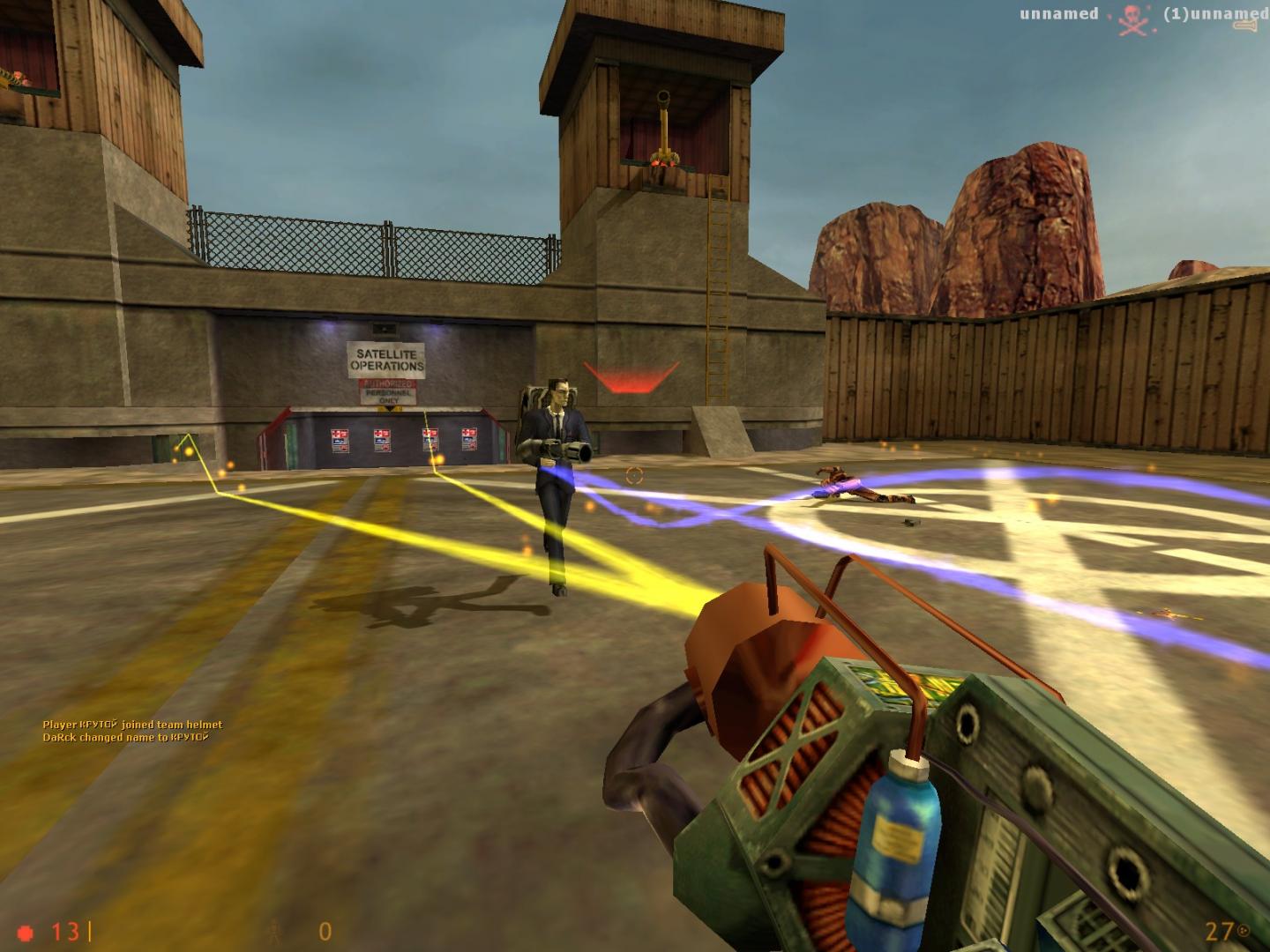information

Half-Life Deathmatch: Source is a Source engine port of the multiplayer portion of Half-Life. It was released on Steam on July 2, 2005. The game is given to players for free as part of their purchase of Half-Life: Source.
As a port, the game possesses several differences with the original multiplayer component of Half-Life, such as the Colt Python lacking the zoom feature.
Half-Life Deathmatch: Source (or simply HLDMS) has game play similar to that of the original multiplayer component of Half-Life. Players are spawned at random points across one of many maps and battle each other in an all out free-for-all. To acquire weapons and ammunition (as well as health and energy), players must search the map for various caches of them. Players get point (Frags) by eliminating other players. The player with the most frags at the end of a match wins that match. If a player has the same amount of frags as another player, but a higher number of deaths than the other player, the player with more deaths will be ranked lower.
HLDMS Never saw the same success as other multi player source engine games, even though a good number of custom maps and some custom game modes have been made by the community.
Counter-Strike: Global Offensive is a multiplayer shooter computer game developed by Valve and Hidden Path Entertainment. Counter-Strike: Global Offensive (CS: GO) is a sequel to the popular game Half-Life: Counter-Strike, which was released in 1999. Counter-Strike: Global Offensive was released on August 21, 2012.
The popularity and audience of CS: GO is constantly growing.
 It is not the first year that a large number of sports tournaments, from amateur to professional, are held in the discipline The prize fund of the tournaments in CS: GO is constantly growing and amounts to $1,000,000 in some competitions. The game has a large number of weapon skins, they do not provide any additional advantage in the game, the price of which reaches several thousand dollars, and anyone can get them by playing the game or opening skins that also fall into the game. The finals of the major tournaments are broadcast on television, and bets on the outcome of the game are made by bookmakers, who talk about the further development and popularization of CS: GO.
It is not the first year that a large number of sports tournaments, from amateur to professional, are held in the discipline The prize fund of the tournaments in CS: GO is constantly growing and amounts to $1,000,000 in some competitions. The game has a large number of weapon skins, they do not provide any additional advantage in the game, the price of which reaches several thousand dollars, and anyone can get them by playing the game or opening skins that also fall into the game. The finals of the major tournaments are broadcast on television, and bets on the outcome of the game are made by bookmakers, who talk about the further development and popularization of CS: GO.




